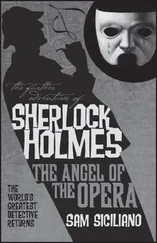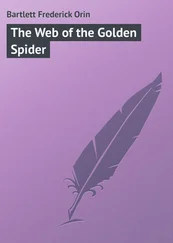Ahern, Jerry - The Web
Здесь есть возможность читать онлайн «Ahern, Jerry - The Web» весь текст электронной книги совершенно бесплатно (целиком полную версию без сокращений). В некоторых случаях можно слушать аудио, скачать через торрент в формате fb2 и присутствует краткое содержание. Жанр: Старинная литература, на английском языке. Описание произведения, (предисловие) а так же отзывы посетителей доступны на портале библиотеки ЛибКат.
- Название:The Web
- Автор:
- Жанр:
- Год:неизвестен
- ISBN:нет данных
- Рейтинг книги:4 / 5. Голосов: 1
-
Избранное:Добавить в избранное
- Отзывы:
-
Ваша оценка:
- 80
- 1
- 2
- 3
- 4
- 5
The Web: краткое содержание, описание и аннотация
Предлагаем к чтению аннотацию, описание, краткое содержание или предисловие (зависит от того, что написал сам автор книги «The Web»). Если вы не нашли необходимую информацию о книге — напишите в комментариях, мы постараемся отыскать её.
The Web — читать онлайн бесплатно полную книгу (весь текст) целиком
Ниже представлен текст книги, разбитый по страницам. Система сохранения места последней прочитанной страницы, позволяет с удобством читать онлайн бесплатно книгу «The Web», без необходимости каждый раз заново искать на чём Вы остановились. Поставьте закладку, и сможете в любой момент перейти на страницу, на которой закончили чтение.
Интервал:
Закладка:
Marine. To hold free elections and trust the mass of the people to select a leader who was accountable to them.
"No wonder they didn't prevail," Rozhdestvenskiy murmured.
Voskavich asked, "Comrade Colonel?"
"The Americans—their absurd ideas of doing things— it accounts handily for their failure." The thought crossed his mind, though, that Soviet troops were now retreading to regroup for the fight against American Resistance on the eastern seaboard. Their failure had not yet been completely recognized.
Voskavich stepped across the body of the dead Marine, saying, "These men were trapped here—perhaps locked inside."
"That is not the American way. They were probably happy to have died in the service of their country. Give the devihhis due, Voskavich."
Rozhdestvenskiy picked his way over the bodies, seeing ahead of him at the end of a long corridor what he thought was the room.
It recalled the Egyptian tomb analogy to his mind— fhese Marines, priests of the order, guardians of the Pharaoh, who was their high priest. The priests of De
mocracy—an outmoded religion, Rozhdestvenskiy thought. But he did not smile. Despite himself, he was saddened to see the death masks o[ these priests, the anguish, the sorrow, the shock. He wondered what loved ones they had left behind, what dreams they had held dear. They were young, all of them, these priests.
He stopped before the "temple." There was a combination lock on the vault like doors, "I shall need experts in this sort of thing—immediately,"
Rozhdestvenskiy ordered.
"Yes, Comrade Colonel," Voskavich answered, starting to leave. The younger man paused, turning to Rozhdestvenskiy. "Should I leave you here, Comrade?"
"The dead cannot hurt me," Rozhdestvenskiy told him. Voskavich left then and Rozhdestvenskiy stood amid the bodies, by the sealed doors, studying the faces.
In not one of them could he find disillusionment. They had died for something important—what was it? Rozhdestvenskiy wondered. . . .
A sergeant, a corporal and two lieutenants had labored over the locking system ofthedoors,formorelhanahalf hour, and now Voskavich turned to him, saying, "Comrade Colonel—they are ready."
Rozhdestvenskiy only nodded, then touched his black-gloved right hand to the door handle, twisting it. Pulling it open toward him, he shone his light inside. He felt like Carter at the discovery of Tutankhamen. No golden idols were here, but file cabinets, unopened, unlike the ones in other parts of the complex. There was no pile of charred papers and microfilm rolls in the center of the floor.
"No tomb robbers have beaten us»" he remarked,
then stepped inside. He walked quickly through thedark-ness, the light of his torch showing across the yellow indexes on the file drawers.
He found the one he wanted—the ones. There were six file drawers marked "Project ,-C/RS." He opened the top drawer to pull out the abstract sheets at the front of the file. He read them, then closed his eyes, suddenly very tired.
"Voskavich, these drawers are not to be looked in. I will need carts for removing the contents after they have been boxed. Bring the cartons here and I will do that personally."
"Yes, Comrade Colonel Rozhdestvenskiy,' Voskavich answered.
"Leave me here—alone." And Rozhdestvenskiy, when the last one of them had left, switched off his torch and stood in the darkness beside the file drawers. He knew now what the Eden Project was. The Americans never ceased to amaze him.
"I wasn't born here. Most of the rest of them were, and their parents were born here, too, and before that," the woman told him.
"What the hell does that mean, lady?" Rourke asked her, exasperated, smiling as he spoke through tightly clenched teeth while the men and women and children of the town who had made up the knot of humanity in the town square were now breaking up, going home.
"My name's Martha Bogen." She smiled.
"My question wasn't about your name. Don't these people—"
'That's right, Abe." She smiled, saying the last words loudly, a knot of people coining up to them, stopping. She looked at a pretty older woman at the center of a group of people roughly in their sixties, Rourke judged.
She said, "Marion—this is my brother, Abe Collins. He finally made it here to join me!"
"Ohh," the older woman cooed. "Martha, we're so happy for you—to have your brother with you. Ohh— Abe," she said, extending a hand Rourke took. The hand was clammy and cold. "It's so wonderful to meet you after all this time. Martha's younger brother. I hope we'll
see you in church tomorrow."
"Well, I had a hard ride____I'll try though." Rourke smiled.
"Good! I know you and Martha have so much to talk about." The older woman smiled again.
Rourke was busy shaking hands with the others, and as they left, he smiled broadly at Martha Bogen, his right hand clamping on her upper left arm, the fingers boring tightly into her flesh. "You give me some answers—now."
"Walk me home, Abe, and I'll try." She smiled, the smile genuine, Rourke thought.
"I'll get my bike; it's at the corner." He gestured toward it, half-expect ing that in the instant since he'd last looked for it someone had taken it. But it was there, untouched. "I suppose you've got a fully operational gas station, too?"
"Yes. You can fill up tomorrow. You should stay here tonight—at my house.
Everyone will expect it."
"Why?" Rourke rasped.
"I told them you were my brother—of course." She smiled again, taking his arm and starting with him through the ever-thinning crowd.
"Why did you tell them that?"
"If they knew you were a stranger, then they'd have to do something." She smiled, nodding to another old lady as they passed her.
Rourke smiled and nodded, too, then rasped, "Do what?"
"The strangers—most of them didn't want to stay."
"Nobody's going to think I'm your brother. That was so damned transparent—"
"My brother was coming. He's probably dead out there
like everybody else. God knows how you survived."
"A lot of us survived—not everyone's dead."
"I know that, but it must be terrible out there—a world like that."
"They know Fm not your brother."
"I know they do," Martha Bogen said, "but it won't matter—so long as you pretend."
Rourke shook his head, looking at her, saying, his voice low, "Pretend—what the hell is going on here?"
"I can't -explain it well enough for you to understand, Abe—"
"It's John. I told you that."
"John. Walk me home, then just sleep on the couch; it looks like there's bad weather outside the valley tonight. Then tomorrow with a good meal in you—not just those terrible hot dogs—well, you can decide what you want to do."
Rourke stopped beside his bike. "I won't stay—not now," he told her, the hairs on the back of his neck standing up, telling him something more than he could imagine was wrong.
"Did you see the police on the way into town—John?"
"So what?" He looked at her.
ffThey let anyone in, but they won't Jet you out. And at night you won't stand a chance unless you know the valley. I know the valley. Before he died, my husband used to take me for long walks. He hunted the valley a lot—white-tailed deer. I know every path there is."
Rourke felt the corners of his mouth downturning. "How long ago did your husband die?"
"He was a doctor. You have hands like a doctor, John. Good hands. He died five years ago. There was an influenza outbreak in the valley and he worked himself
half to death; children, pregnant women—all of them had it. And he caught it and he died."
"I'm sorry, Martha," Rourke told her genuinely. "But J cant stay."
"We have twelve policemen and they work twelve-hour shifts lately—six men on and six off. Can you fight twelve policemen to get out of town—into a storm?" She stroked his face with her right hand. "You need a shave. I'll bet a hot shower would be good, and a warm bed."
Читать дальшеИнтервал:
Закладка:
Похожие книги на «The Web»
Представляем Вашему вниманию похожие книги на «The Web» списком для выбора. Мы отобрали схожую по названию и смыслу литературу в надежде предоставить читателям больше вариантов отыскать новые, интересные, ещё непрочитанные произведения.
Обсуждение, отзывы о книге «The Web» и просто собственные мнения читателей. Оставьте ваши комментарии, напишите, что Вы думаете о произведении, его смысле или главных героях. Укажите что конкретно понравилось, а что нет, и почему Вы так считаете.







